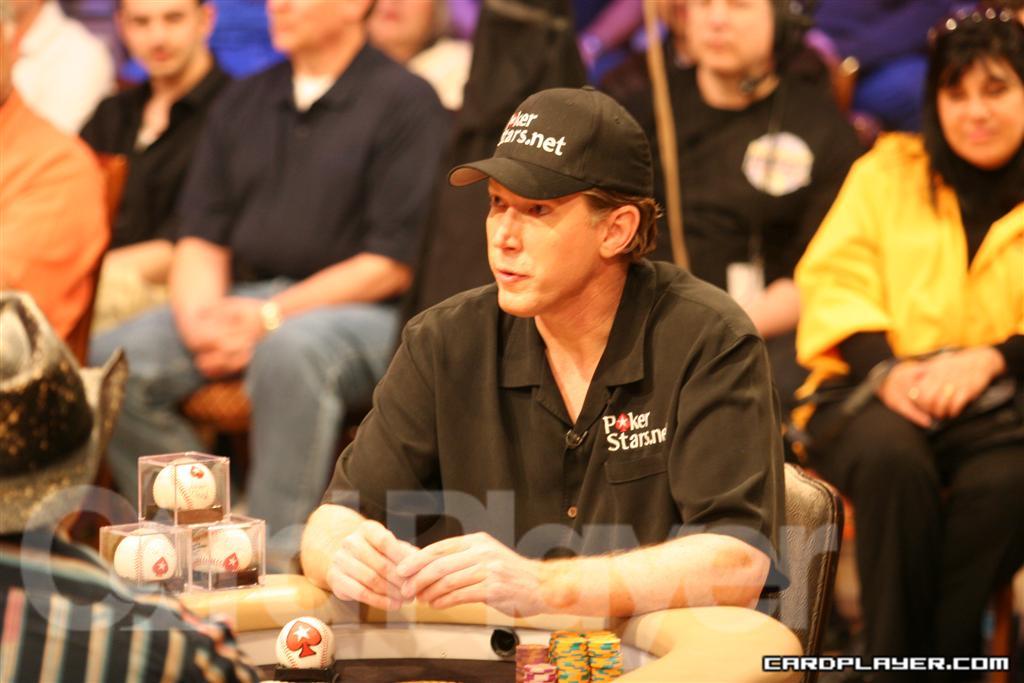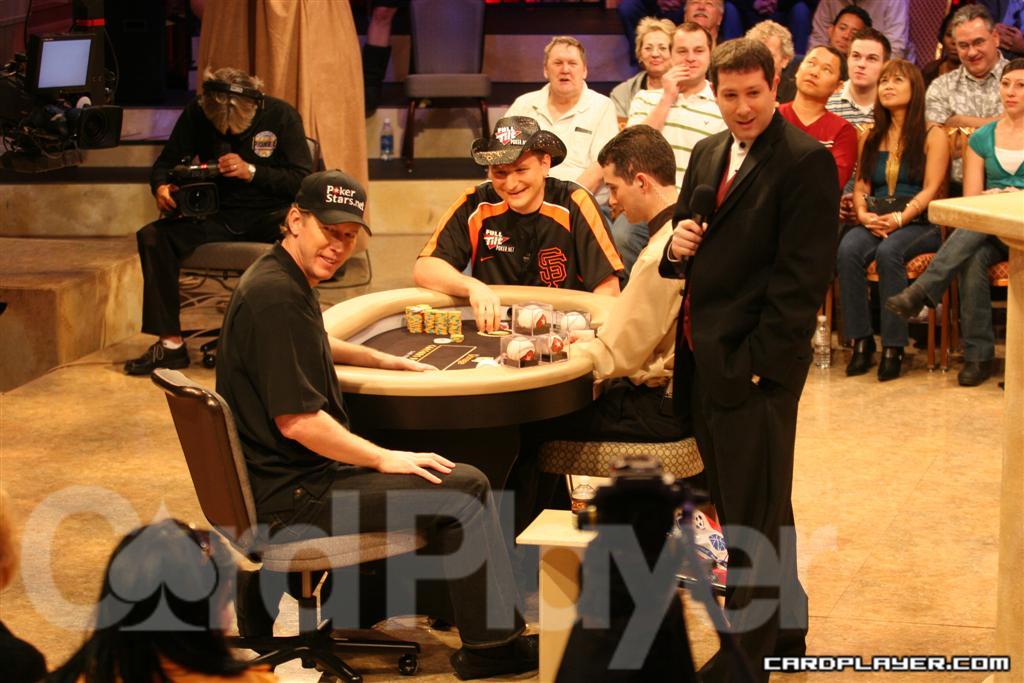Every year at the NBC National Heads-up Poker Championship, a Cinderella story emerges and an underdog makes an upset run deep into the tournament. Last year, Don Cheadle upset Phil Ivey in the first round, while Shannon Elizabeth made a run all the way to the final four. This year, the celebrity athlete wearing the midnight slipper was former major league pitcher Orel Hershiser. He defeated Ted Forrest, Allen Cunningham, and Freddy Deeb to make it to a quarter-final showdown with Andy Bloch, where he eventually fell. But he impressed a lot of people (players and fans alike) along the way. Card Player caught up with Hershiser to chat about his experience at Caesars Palace, how he got his start in the game, and the skills needed to be successful as both an ace pitcher and poker player.
 Ryan Lucchesi: How did it feel to make a deep run to the elite eight at the Heads-Up Championship?
Ryan Lucchesi: How did it feel to make a deep run to the elite eight at the Heads-Up Championship?
Orel Hershiser: Being a neophyte, a rookie, I don’t really understand what I’ve done, really. I think I will probably get more perspective when you guys write about it and I see it afterwards. Right now, I’m just putting blinders on and continuing to follow a plan. Mark Gregorich, Bill Edler, Gavin Smith, Scotty Nguyen, and a few others have really helped me out a lot, and I’m just trying to execute what they taught me and not make any mistakes. I gotta believe the deck is hitting me; I haven’t seen my opponent’s cards yet, but I have to believe the deck is hitting me.
RL: What are some of the tips that the pros gave you prior to the tournament that you have put to use heads up?
OH: The main thing was just the difference between the ring game and heads up. How important a pair is, not just in your hand, but also if you flop a pair. When do you really want to play a big pot? Why would you want to play one at this point in the match? Is this really where you want to risk a quarter of your chip stack, half your chip stack, and so on? Starting hands are a lot different in this than they are in ring games. The importance of aces and kings, top pair with an ace or king kicker, and stuff like that. And I have taken what they’ve said and put it in Cliff Notes, and I kind of constantly evaluate myself against that to see if I executed or made a mistake in what they’ve told me.
RL: Is there anyone you hope to avoid in the tournament?
OH: I know these guys as television celebrities; it’s the first time I’ve been around them, so they’re coming up and talking to me. I don’t talk poker with them other than the guys that PokerStars introduced me to, or the Poker Royalty people, and Mark Gregorich. Those are my connections to talk to the pros. So, when I see I’m playing Andy Bloch next, or down the road that it could be Phil Ivey, I don’t sit there and worry. I just know, “Wow he’s a great guy; I love the way he plays on TV.” Or “Hey, Mike [Matusow] is The Mouth,” but when you get to know him, he’s a pretty low-key guy and down to earth. I’ve always loved Daniel Negreanu; he’s an amazing guy, you know? I can’t believe he got knocked out. So it’s kind of like rookie awe, even though I’m 49 years old; you just go “Wow.” I’m sweating every match. I want to stay and watch.
 RL: How did you first start playing poker?
RL: How did you first start playing poker?
OH: I started because of television poker. I started playing low, low limits online, and then I started dating a girl that lives here in Vegas. When I came to visit her, I would play while she was working. I started gravitating to studying a little bit, and I watched Mark Gregorich in a poker video. So, I watched Mark and I said, “He looks like me, talks kind of like me, probably has some mannerisms like me, is an ex-school teacher ... I bet he could teach me.” So, I ran into him at Bellagio and I walked up to him and introduced myself and said “I’d like to befriend you and have you help me,” and we’ve been great friends ever since.
RL: How would you compare the matchup between pitcher and hitter to facing an opponent in a heads-up match?
OH: I think that in pitching you have tactics, in poker you have tactics. In pitching you have emotions, in poker you have emotions. But in pitching you have something physical that can let you down. In poker, there’s not really something physical that’s going to let you down unless you have tells that are giving things away. A lot of the skills are transferable; the preparation, the ability to control your emotions, the ability to understand when the moment is, the ability not to make a snap decision, the ability to understand limping or pitching around a guy, and the ability to fold and intentionally walk somebody. Going after a guy because that is the only thing you can do, because runners are at second and third and you only have a one-run lead, and the blinds are up to 4,000 and you only have 16,000 in chips; you know, I’ve got to go with my best pitch, I’ve got to all in — those kind of comparisons.









